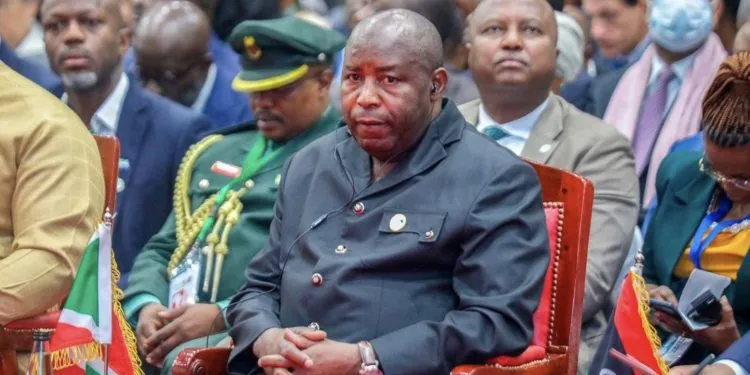Burundi’s President Evariste Ndayishimiye recently unleashed a vehement condemnation of same-sex marriage, branding it an “abominable practice” and endorsing the stoning of gay couples on religious grounds.
The President, renowned for his conservative Christian beliefs, had previously advocated for the “banishment” of homosexuals, treating them as societal outcasts. He openly criticised Western nations opposing LGBTQ+ rights and defiantly declined aid from those supporting such practices, urging individuals with such beliefs to stay abroad.
Addressing journalists during a press conference, President Ndayishimiye employed a Bible reference to assert that God opposed homosexuality, emphasising that it was no longer a contentious issue in Burundi.
In response to questions about alleged pressure from Western countries regarding the recognition of LGBT rights, he remarked, “For me, I think that if we find these people in Burundi, they should be taken to stadiums and be stoned, and doing so would not be a crime.”
Mr. Ndayishimiye went on to characterise homosexuality as a choice between “Satan and God,” stating, “If you want to choose Satan, now go and live in those countries [in the West], and I think those who strive to go there want to acquire those habits; they should remain there and never bring them to us.”
This resolute position aligns with the prevailing conservative Christian values in the Great Lakes country, where same-sex relations are subject to imprisonment.
Several African leaders have previously accused donor countries of attempting to impose their values on the continent.
Ndayishimiye’s statement comes amidst global discussions on LGBTQ+ rights, with notable developments such as Pope Francis’ declaration on December 18th regarding the blessing of homosexual couples.
While representing a symbolic shift in the Catholic Church’s stance, it’s crucial to recognise the Church’s continued differentiation between homosexual and heterosexual marriages.
The Vatican’s adherence to the doctrine of the “one true marriage” emphasises that while marriage for all is tolerated, it is not fully accepted within the Catholic religion.
However, implementing such changes on a global scale proves intricate. Despite the Vatican’s guidance, enforcing a shift in mindset and implementing measures across all Catholic communities remains a formidable challenge.
Several African churches have already signaled their resistance to these advances. For instance, the bishops of Cameroon explicitly rejected any change, stating, “We formally prohibit all blessings of homosexual couples.” Similarly, Togo has expressed openness to individuals in same-sex relationships but encourages priests to abstain from blessing such couples.
This dynamic mirrors the ongoing struggle within the Catholic Church to reconcile differing perspectives on LGBTQ+ issues, highlighting the tension between global doctrinal shifts and the autonomy of individual religious communities, particularly in conservative regions like Africa.



